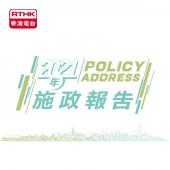 載入中 ...
載入中 ...
返回
Executive Councillor Ronny Tong
2019-02-24
In a recent novel co-authored by no less than the Past American President Bill Clinton, the main character who was also a US President said this in a moment of despair, “(Modern politics) breeds more frustration, polarization, paralysis, bad decisions, and missed opportunities…with no incentive to actually accomplish something; more and more politicians just go with the flow, fanning the flames of anger and resentment, when they should be acting as the fire brigade.” Such observation is so sad, and yet so true; and Hong Kong is the very epitome of this madness.
Just look at the recent debate on Government’s proposal to amend the Fugitive Offenders Ordinance to give power to the Chief Executive to order certain criminal suspects to be transferred to other jurisdictions subject to confirmation of the courts on a case by case basis. From a Rule of Law and social justice point of view, you would have thought no one, let alone lawyers would object to this amendment; but sadly, the opposite is the case. Some prominent senior lawyers and legislators were reported as saying the Government was forcing the Hong Kong courts to adjudge the adequacy or otherwise of the Mainland legal system, or would be using the proposed amendment to send people back to the Mainland for political offences. One would wish such accusations are based on simple legal ignorance rather than deliberate political posturing.
First and foremost, extradition arrangements the world over are needed to deal with serious criminal offences for the simple reason that the Rule of Law dictates that no one is above the law and there should not be criminal havens for criminals in any modern society. Such arrangements are totally divorced from politics and only serve the aims of social justice.
The law of Hong Kong in this respect is no exception. The Ordinance makes it plain from the very outset under section 2 that it can only apply to the specified 46 offences listed in the Schedule, none of which has anything to do with political, public order, or public security offences. Not only that, the Ordinance can only apply to acts which if committed in Hong Kong would carry punishment of more than 12 months imprisonment. Specifically, section 5 further provides a person shall not be surrendered in relation to an offence of a political character or on account of his race, religion, nationality or political opinions no matter how the offence is characterized in the request. Whether an offence is of a political nature is for the local court to judge and no extradition order would be made if the court is of the view that the suspect’s trial or punishment might be prejudiced by reason of his race, religion, nationality or political opinion.
There are other safeguards under the Ordinance including no prisoner surrendered would be re-extradited to a third place or country, or be re-tried for an offence which the prisoner had already been tried and so on. Such provisions ensure a fair trial would be had by anyone surrendered to the extent the Government can so ensure. You will note that these provisions have always been part of our law and since the proposed change involves merely amending the existing Ordinance to give more power to the Chief Executive subject to the scrutiny of the court under the existing regime, there is no reason whatsoever for anyone to doubt the motive or effect of the proposed amendment.
As to the adequacy or otherwise of the Mainland legal system, those critics who are lawyers should know that under the well established principle of Comity of Nations, the common law court never tries to second guess the adequacy or otherwise of any foreign court but to give the latter the fullest respect and trust. Truth of the matter is, we have entered into numerous extradition treaties with many nations whose courts are, in some view, less than ideal. That is why in every case we normally would reserve to ourselves certain discretion to ensure justice is being done in extreme cases; for example, under section 13 of the Ordinance the Chief Executive may refuse to surrender a prisoner simply on the ground that he or she is a national of the People’s Republic of China. Such a reservation is common in all extradition treaties and not an invention of either Hong Kong or the PRC. All this is never in the context of political considerations but rather in the interest of justice.
What I have said so far are basic facts and legal principles based on our law. To suggest the Government may ignore the law is one thing; but to so much as insinuate our judges will ignore the law and serve the political interests of Beijing is quite another. There is absolutely no reason or basis why such insufferable insults should be thrown at our judges. Do not forget our Court of Final Appeal is of the highest esteem in the world and includes some of the most prominent Chief Justices and senior judges of the highest caliber in the Common Law world. Such totally unfounded accusations are all the more despicable when one considers that the accusers are prominent lawyers and politicians in our midst and plainly know the real facts.
Putting everything else aside, the mere fact that we have extradition arrangements with some 35 countries all over the world but none with our own country is a most unacceptable flaw in our legal system. This unforgivable flaw has been staring in our face since the Handover. That was in fact why, in 1999, as then Chairman of the Bar I openly called on the Government to work out an acceptable extradition arrangement with Beijing “as soon as possible”. Almost 20 years on, we are still regrettably nowhere near a full agreement; so a little too late is still better than nothing at all. Let us sincerely hope, for once, our politicians can put the Rule of Law and social justice ahead of their own political agenda and do the right thing by supporting the amendment.
Just look at the recent debate on Government’s proposal to amend the Fugitive Offenders Ordinance to give power to the Chief Executive to order certain criminal suspects to be transferred to other jurisdictions subject to confirmation of the courts on a case by case basis. From a Rule of Law and social justice point of view, you would have thought no one, let alone lawyers would object to this amendment; but sadly, the opposite is the case. Some prominent senior lawyers and legislators were reported as saying the Government was forcing the Hong Kong courts to adjudge the adequacy or otherwise of the Mainland legal system, or would be using the proposed amendment to send people back to the Mainland for political offences. One would wish such accusations are based on simple legal ignorance rather than deliberate political posturing.
First and foremost, extradition arrangements the world over are needed to deal with serious criminal offences for the simple reason that the Rule of Law dictates that no one is above the law and there should not be criminal havens for criminals in any modern society. Such arrangements are totally divorced from politics and only serve the aims of social justice.
The law of Hong Kong in this respect is no exception. The Ordinance makes it plain from the very outset under section 2 that it can only apply to the specified 46 offences listed in the Schedule, none of which has anything to do with political, public order, or public security offences. Not only that, the Ordinance can only apply to acts which if committed in Hong Kong would carry punishment of more than 12 months imprisonment. Specifically, section 5 further provides a person shall not be surrendered in relation to an offence of a political character or on account of his race, religion, nationality or political opinions no matter how the offence is characterized in the request. Whether an offence is of a political nature is for the local court to judge and no extradition order would be made if the court is of the view that the suspect’s trial or punishment might be prejudiced by reason of his race, religion, nationality or political opinion.
There are other safeguards under the Ordinance including no prisoner surrendered would be re-extradited to a third place or country, or be re-tried for an offence which the prisoner had already been tried and so on. Such provisions ensure a fair trial would be had by anyone surrendered to the extent the Government can so ensure. You will note that these provisions have always been part of our law and since the proposed change involves merely amending the existing Ordinance to give more power to the Chief Executive subject to the scrutiny of the court under the existing regime, there is no reason whatsoever for anyone to doubt the motive or effect of the proposed amendment.
As to the adequacy or otherwise of the Mainland legal system, those critics who are lawyers should know that under the well established principle of Comity of Nations, the common law court never tries to second guess the adequacy or otherwise of any foreign court but to give the latter the fullest respect and trust. Truth of the matter is, we have entered into numerous extradition treaties with many nations whose courts are, in some view, less than ideal. That is why in every case we normally would reserve to ourselves certain discretion to ensure justice is being done in extreme cases; for example, under section 13 of the Ordinance the Chief Executive may refuse to surrender a prisoner simply on the ground that he or she is a national of the People’s Republic of China. Such a reservation is common in all extradition treaties and not an invention of either Hong Kong or the PRC. All this is never in the context of political considerations but rather in the interest of justice.
What I have said so far are basic facts and legal principles based on our law. To suggest the Government may ignore the law is one thing; but to so much as insinuate our judges will ignore the law and serve the political interests of Beijing is quite another. There is absolutely no reason or basis why such insufferable insults should be thrown at our judges. Do not forget our Court of Final Appeal is of the highest esteem in the world and includes some of the most prominent Chief Justices and senior judges of the highest caliber in the Common Law world. Such totally unfounded accusations are all the more despicable when one considers that the accusers are prominent lawyers and politicians in our midst and plainly know the real facts.
Putting everything else aside, the mere fact that we have extradition arrangements with some 35 countries all over the world but none with our own country is a most unacceptable flaw in our legal system. This unforgivable flaw has been staring in our face since the Handover. That was in fact why, in 1999, as then Chairman of the Bar I openly called on the Government to work out an acceptable extradition arrangement with Beijing “as soon as possible”. Almost 20 years on, we are still regrettably nowhere near a full agreement; so a little too late is still better than nothing at all. Let us sincerely hope, for once, our politicians can put the Rule of Law and social justice ahead of their own political agenda and do the right thing by supporting the amendment.
Politicians and public figures from a range of backgrounds take turns to have their say on important matters of the day in this personal view programme.
Catch it live: Sunday 8:15am - 8:25am
Podcast: Updated weekly and available after broadcast.










